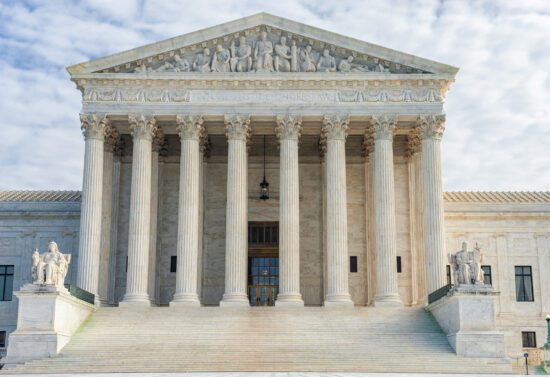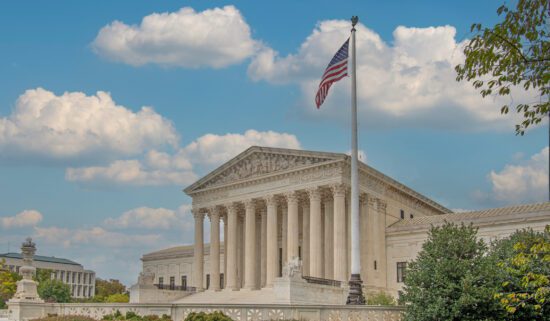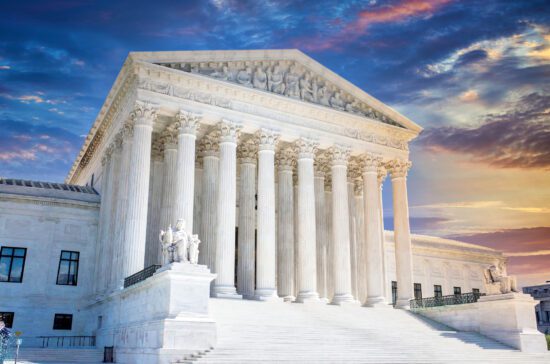Today, June 13, the Supreme Court ruled unanimously that the Alliance for Hippocratic Medicine lacked standing and determined that, as a result, the court would not reinstate any of the safety precautions previously in place by the U.S. Food and Drug Administration (FDA) regarding the prescription of mifepristone. This drug is typically used to perform chemical, nonsurgical abortions and, under the current restrictions, has become more widely accessible to women as a result of the removal of safety precautions in 2016 and 2021.
Justice Kavanaugh delivered the opinion of the court with Justice Thomas concurring.
What is mifepristone, and when can it be prescribed?
Mifepristone is a drug used in chemical abortions as part of a two-part regimen, in which:
- mifepristone ends the life of the preborn child, and
- misoprostol expels the child from his or her mother’s womb.
These drugs are utilized in conjunction with each other to complete the abortion.
In 2016, the FDA revised the drug’s restrictions on mifepristone. Before the revised restrictions, a healthcare professional could only prescribe the medication in person and required in-person follow-up appointments to evaluate the mother’s health. The new revision allowed for the follow-up appointments to be conducted through telehealth. Additionally, the FDA expanded the gestational age restrictions from 7 weeks to 10 weeks of gestation.
In 2021, the FDA revised its standards to allow for mail delivery of mifepristone by permitting providers to prescribe this drug through telehealth, making mail-order abortion available even in states with pro-life protections in place.
What did the decision say?
In their decision, the Supreme Court decided not to rule on the merits of prior safety standards related to mifepristone and the decision of the FDA to remove such standards. Instead, the court has determined to allow the loosened safety standards to remain in place and threw out the case on procedural grounds known as standing. Standing refers to the ability of a plaintiff to bring a challenge in court.
In his opinion, Justice Kavanaugh laid out the three requirements for a plaintiff to have standing to bring a case to the court.
- First, a plaintiff “must show that he or she has suffered or likely will suffer an injury in fact.”
- Second, the plaintiff must establish that the plaintiff ’s injury likely was caused or likely will be caused by the defendant’s conduct. Essentially, “to establish causation, the plaintiff must show a predictable chain of events leading from the government action to the asserted injury—in other words, that the government action has caused or likely will cause injury in fact to the plaintiff.”
- Finally, the plaintiff must show that “the injury likely would be redressed by the requested judicial relief.”
The court ruled that the pro-life doctors represented in the Alliance for Hippocratic Medicine did not meet these requirements. The justices cited and affirmed robust conscience protections in place for medical professionals as breaking “any chain of causation between FDA’s relaxed regulation of mifepristone and any asserted conscience injuries to the doctors” (17).
In summation, Justice Kavanaugh wrote:
The plaintiffs have sincere legal, moral, ideological, and policy objections to elective abortion and to FDA’s relaxed regulation of mifepristone. But under Article III of the Constitution, those kinds of objections alone do not establish a justiciable case or controversy in federal court. Here, the plaintiffs have failed to demonstrate that FDA’s relaxed regulatory requirements likely would cause them to suffer an injury in fact. For that reason, the federal courts are the wrong forum for addressing the plaintiffs’ concerns about FDA’s actions. The plaintiffs may present their concerns and objections to the President and FDA in the regulatory process, or to Congress and the President in the legislative process. And they may also express their views about abortion and mifepristone to fellow citizens, including in the political and electoral processes. (24)
This decision does not prohibit future challenges to chemical abortion drugs from taking place, but would require plaintiffs to bring a case on different grounds. Alternatively, this case does not affect any efforts that may materialize through the legislative or electoral process.
What were the core arguments?
The Alliance articulated three core arguments before the Supreme Court:
- Their conscience protections could be violated in the future due to removing these protections.
- The likelihood of violations of conscience occurring is higher due to the removal of safety precautions that were in place before 2016 that would catch more concerning medical cases, such as the presence of an ectopic pregnancy or other complications that make the use of mifepristone more hazardous.
- The FDA did not fully consider the collective effects of removing the entirety of the safety precautions in place before the 2016 and 2021 revisions. It is estimated that 1 in 5 women experience medical complications from taking abortive drugs at home.
Ultimately, the court did not weigh in on these arguments as the principle of standing must be met before reaching to the merits of a case.
Why does this matter to Southern Baptists?
Southern Baptists believe each person is inherently valuable and made in God’s image, including both the preborn child and his or her mother. Mifepristone and other forms of chemical abortion present abundant concern due to the risk of physical harm that is caused to the mother and the killing of preborn children.
The ERLC filed an amicus brief for this case in support of the Alliance. Though we are disappointed by this decision, we will continue persistently working toward a day when abortion in any form is both illegal and unthinkable. We remain confident that the Lord is in control and will continue to push for standards that protect women and save preborn lives.










